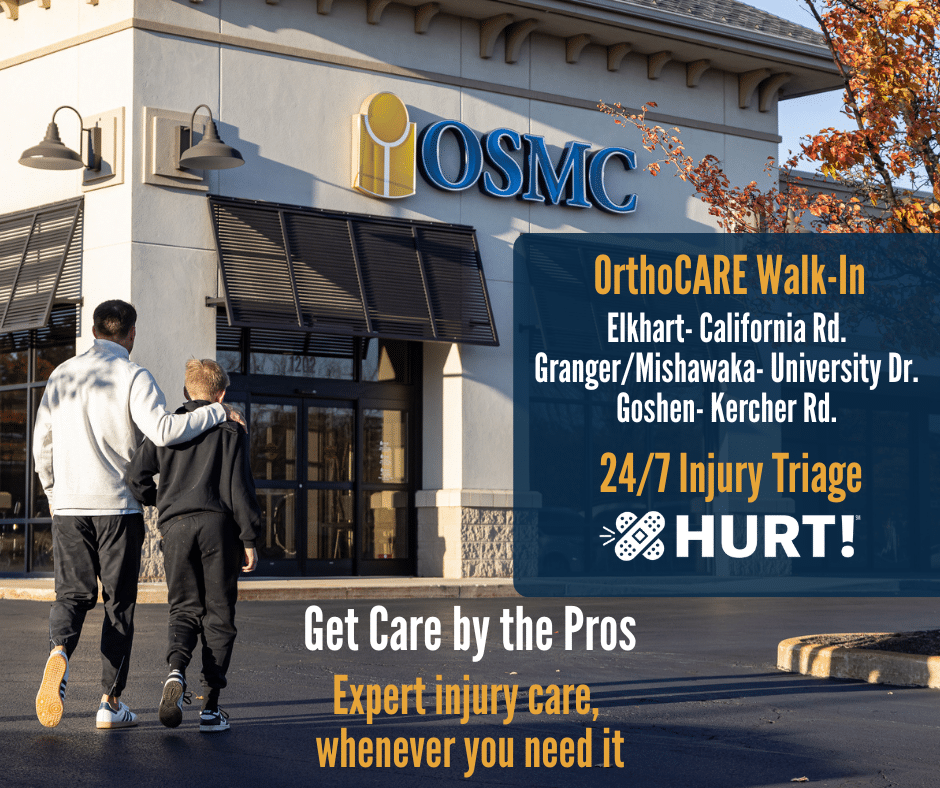Spinal Stenosis Doctor in Northern Indiana
What is Spinal Stenosis?
Spinal stenosis is a medical condition of the spine that happens when the spine narrows, which creates pressure on the spinal cord and nerves. The narrowing can happen in the upper and lower parts of the spine. As space in the spine becomes more restricted, patients with spinal stenosis can experience a range of symptoms including pain and weakness.

What are the Symptoms of Spinal Stenosis?
Everyone gets back pain, but if you have any accompanying symptoms, or chronic back pain that doesn’t get better with home treatment like rest or over-the-counter NSAIDs, seek a medical opinion.
- Back pain
- Burning pain that travels down the leg, or sciatica pain
- Loss of sensation in the legs and feet
- Cramping, numbness, tingling, or weakness in the back and legs
- People with advanced spinal stenosis may experience loss of bladder control or severe pain and weakness in the lower legs. These are serious symptoms and you should seek medical attention if this occurs.
What Causes Spinal Stenosis?
Potential causes of spinal stenosis include:
- Aging is the most common cause of spinal stenosis. The spine experiences degenerative changes as we age. Changes like thickening ligaments, the presence of bone spurs, and bulging discs can limit space in the spinal canal and cause stenosis.
- Herniated discs can compress spinal nerves or the spinal cord, causing stenosis in the area around that disc.
- Spinal trauma like fractures and dislocations of the spine can cause spinal stenosis.
- Genetic factors can make people predisposed to spinal stenosis.
- Rheumatological Conditions like rheumatoid arthritis, Paget’s disease, or ankylosing spondylitis can cause spinal stenosis.
- Genetic factors may play a role in if someone develops spinal stenosis.
What are the Treatments for Spinal Stenosis?
Treatment for spinal stenosis includes:
- Physical therapy
- Medications such as non-steroidal anti-inflammatory drugs (NAIDS) or prescription pain relievers
- Corticosteroid injections into the spine to reduce inflammation
- Lifestyle changes such as avoiding activities that flare your symptoms
- Assistive devices like braces or walking aids like a cane or walker
- Surgical interventions such as decompression surgery, spinal fusion, or minimally invasive surgeries such as endoscopic procedures to decompress the spine
Spinal stenosis doesn’t go away completely and can get worse if it goes untreated and causes serious compounding health issues. Most patients with spinal stenosis see relief from conservative therapies such as physical therapy, medication management, and avoiding activities that exacerbate their symptoms. Seek medical treatment if you’re not seeing any symptom relief or are experiencing extreme symptoms.
Spinal Stenosis Care in Michiana
Specialized and experienced spinal stenosis care is available at OSMC, your trusted orthopedic destination in Michiana. Our skilled orthopedic specialists are here to provide expert evaluation and diagnosis for spinal stenosis and provide a personalized treatment plan.
For more information, give us a call or schedule an appointment online with one of our neck and spine specialists. Our orthopedic clinic has multiple locations. We serve patients in Elkhart, IN, Goshen, IN, Granger, IN, Middlebury, IN, and Nappanee, IN. We also have two walk-in orthopedic clinics.



